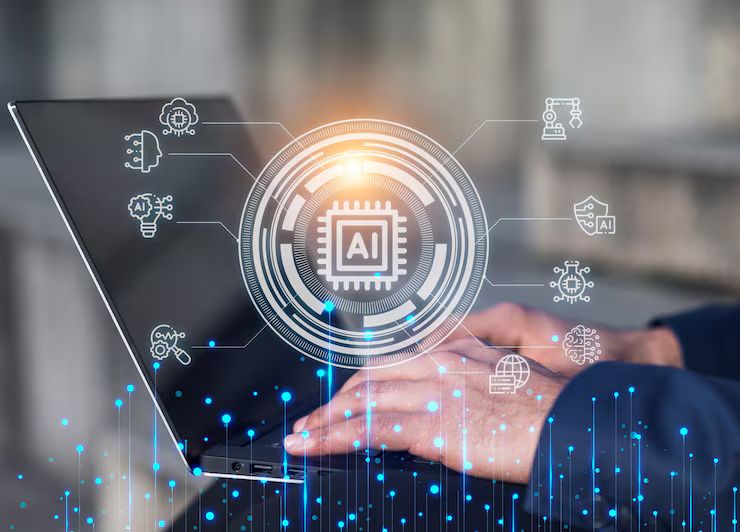Mastering AI Explained: Informative Guide with Tips, Knowledge, and Important Details
Artificial Intelligence (AI) refers to systems designed to mimic human intelligence, including learning, reasoning, and decision-making. Mastering AI means gaining a deep understanding of how AI models work, how they are applied in real-world problems, and how they continue to evolve.
The concept exists because the demand for smarter, data-driven solutions has grown across industries. From healthcare to finance and education to transportation, AI technologies help organizations analyze large datasets, recognize patterns, and automate tasks that traditionally required human effort.
The journey of AI mastery spans decades, beginning with early rule-based systems in the 1950s and expanding into today’s sophisticated deep learning models.

Importance of mastering AI
Understanding AI is essential because it has widespread effects on individuals, organizations, and societies.
-
Problem-solving capability: AI addresses challenges in healthcare, cybersecurity, climate research, and logistics by providing predictive insights.
-
Economic transformation: According to global economic studies, AI could contribute trillions of dollars to the economy in the coming decade.
-
Accessibility of knowledge: AI tools democratize access to information and improve personalized learning.
-
Automation benefits: Repetitive tasks are optimized, freeing professionals to focus on creative and strategic work.
-
Innovation drive: Fields like robotics, natural language processing, and computer vision are reshaping industries.
For students, professionals, and policymakers, mastering AI ensures they can adapt to technological changes while addressing ethical and societal concerns.
Recent updates in AI
The past year has seen important developments in artificial intelligence, shaping how it is adopted worldwide.
-
Generative AI expansion (2023–2024): Tools like large language models and generative systems for text, image, and video creation became mainstream.
-
AI regulation discussions: In late 2023, the European Union advanced its AI Act to establish the first comprehensive set of global rules for artificial intelligence.
-
Healthcare adoption: In 2024, AI-assisted diagnostic systems gained approval in multiple countries, supporting radiology and pathology.
-
AI and climate modeling: New machine learning models were introduced in 2024 to predict extreme weather and environmental changes more accurately.
-
Integration with business platforms: Major enterprises incorporated AI for customer interaction, fraud detection, and decision support.
| Year | Development | Key Impact |
|---|---|---|
| 2023 | Generative AI tools rise | Broader public access |
| 2023 | AI regulation proposals | Safer applications |
| 2024 | Healthcare AI approvals | Improved diagnostics |
| 2024 | Climate AI models | Environmental research support |
Laws and policies on AI
AI is influenced by a growing set of rules and policies that differ by region.
-
European Union AI Act: Expected to take effect in 2025, it categorizes AI systems by risk and sets strict rules for high-risk uses.
-
United States initiatives: Guidelines from agencies emphasize trustworthy AI, fairness, and protection of personal data.
-
China’s AI governance rules: Policies focus on security, transparency, and alignment with government standards.
-
Global cooperation: Organizations like UNESCO promote ethical AI principles to ensure equitable access and responsible innovation.
-
Privacy laws: Regulations such as GDPR in Europe and CCPA in California affect how AI systems handle personal data.
These policies aim to balance innovation with responsibility, ensuring AI advances in ways that protect individuals and societies.
Tools and resources for learning AI
Multiple tools and platforms are available for those aiming to master AI concepts and applications.
-
AI platforms: Open-source frameworks such as TensorFlow and PyTorch allow developers to design and train machine learning models.
-
Educational websites: Platforms with structured courses and tutorials provide step-by-step learning pathways.
-
Datasets repositories: Public databases help learners experiment with real-world problems.
-
Visualization tools: Software that simplifies model training and testing through graphical dashboards.
-
Ethics guidelines: Reports and resources by global organizations provide frameworks for responsible AI development.
For beginners, starting with online tutorials and gradually moving to applied projects is a proven way to build AI mastery.
FAQs about mastering AI
What does it mean to master AI?
Mastering AI means understanding its core concepts, techniques, and applications, from machine learning and natural language processing to real-world implementation.
Is AI only for technical experts?
No. While technical expertise helps, professionals in fields like law, healthcare, and business also benefit from AI knowledge to make informed decisions.
How is AI different from machine learning?
AI is the broad field of creating intelligent systems, while machine learning is a subset where algorithms learn patterns from data.
What are some challenges in AI adoption?
Challenges include data privacy concerns, lack of transparency in decision-making, and ethical risks such as bias in algorithms.
Will AI replace humans completely?
AI automates many tasks but is unlikely to replace human creativity, judgment, and emotional intelligence. Instead, it works best as an augmentation tool.
Conclusion
Mastering AI is not only about understanding algorithms but also about appreciating the larger impact it has on industries and society. With rapid developments in generative systems, regulation, and applied research, the field continues to evolve at a fast pace.
By staying informed about context, updates, and ethical policies, individuals can approach AI with clarity and responsibility. Access to tools and resources makes it possible for both beginners and experts to gain practical skills while ensuring that innovation is guided by fairness and sustainability.
Artificial intelligence is more than a technological trend—it is a transformative shift that will shape future work, education, and daily life.